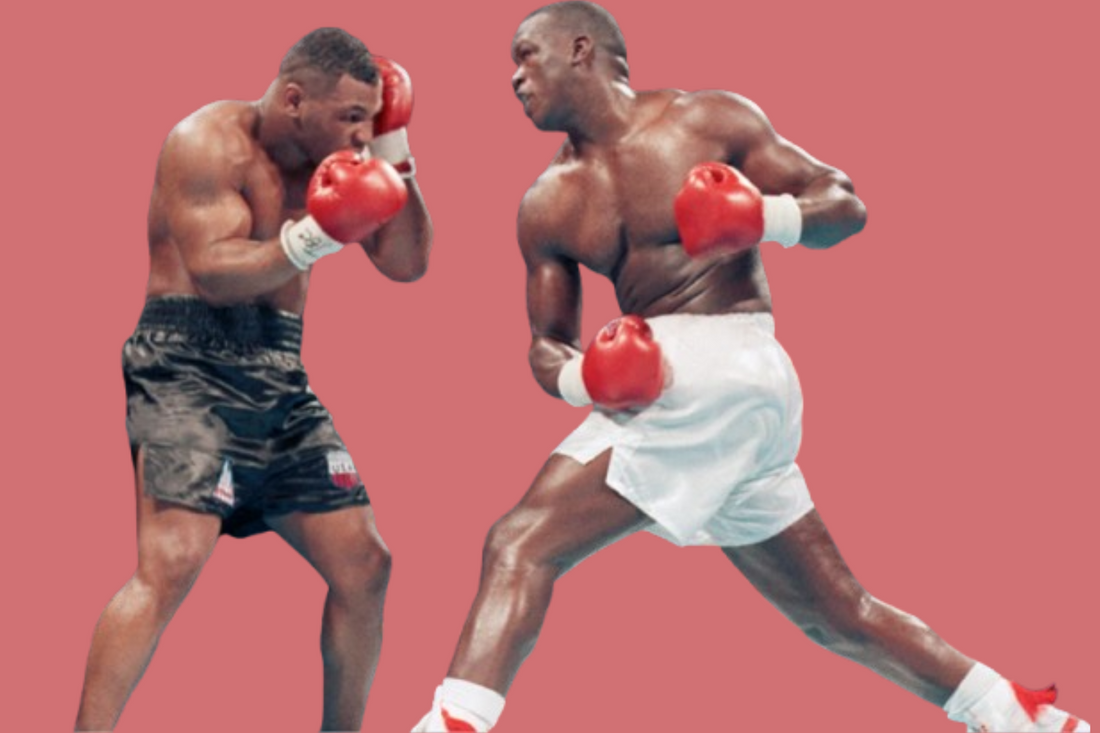Mike Tyson's shocking loss to Buster Douglas on February 11, 1990, is one of the most significant upsets in the history of boxing.
Tyson, then the undefeated and undisputed heavyweight champion, was widely expected to dispatch Douglas with ease. But the underdog Douglas defied all odds and emerged victorious, leaving the boxing world in disbelief.
Background of the Fight
Mike Tyson's Dominance
- Tyson's Unparalleled Dominance: Leading up to the fight, Mike Tyson had gained a fearsome reputation as a ferocious and dominant heavyweight boxer. His explosive power, exceptional speed, and aggressive fighting style had led to a string of victories, earning him the title of the "Baddest Man on the Planet."
Buster Douglas' Underdog Status
- Douglas' Underestimation: On the other hand, Buster Douglas, while a talented boxer, was largely viewed as an underdog with little chance of overcoming Tyson's might. His past performances were inconsistent, and he was considered a mere stepping stone for Tyson's continued dominance in the sport.
Factors Contributing to Tyson's Loss
Personal Issues
- Tyson's Personal Turmoil: Leading up to the fight, Mike Tyson was battling personal turmoil, including the illness and eventual death of his mentor and father figure, Cus D'Amato. These emotional struggles had a profound impact on Tyson's mental state and preparation for the fight.
Pre-Fight Preparation
- Lack of Intense Training: Contrary to his usual rigorous training regimen, Tyson's preparation for the fight against Douglas was notably lackluster. He appeared overconfident and failed to take Douglas seriously as a formidable opponent.
Underestimation of Douglas
- Underestimating His Opponent: Tyson and his camp significantly underestimated Buster Douglas, failing to recognize the latter's determination and skill. This complacency led to a lack of strategic planning and a failure to adapt to Douglas' unorthodox fighting style during the match.
Douglas' Performance
- Douglas' Exceptional Performance: Buster Douglas, driven by personal motivation and a burning desire to prove himself, entered the ring with a level of determination and focus that caught Tyson off guard. Douglas executed a near-flawless game plan, utilizing his reach advantage and movement to keep Tyson at bay while delivering precise and powerful combinations.
Tyson's Overconfidence
- Tyson's Overconfidence: In the lead-up to the fight, Tyson exuded an air of invincibility, possibly underestimating the threat posed by Douglas. This overconfidence may have led to Tyson's lack of urgency and inability to adapt when faced with a resilient and skillful opponent.
Referee Controversy
- Controversial Refereeing: The fight was marred by a controversial refereeing decision when Douglas was given extra time to recover after being knocked down by Tyson. This unexpected turn of events disrupted Tyson's momentum and may have affected his focus and concentration.
Aftermath and Legacy
Impact on Tyson's Career
- Impact on Tyson: The defeat had a profound impact on Mike Tyson, marking the beginning of a tumultuous period in his career. It shattered his aura of invincibility and set the stage for subsequent setbacks and personal challenges.
Buster Douglas' Triumph
- Douglas' Triumph: For Buster Douglas, the victory against Tyson was a crowning achievement, elevating his status in the boxing world and etching his name in sporting history. However, he struggled to maintain the same level of success in subsequent fights.
Significance in Boxing History
- Historical Significance: The upset remains a pivotal moment in boxing history, serving as a reminder of the unpredictable nature of sports and the potential for underdogs to defy expectations. It also underscores the importance of mental fortitude, thorough preparation, and never underestimating one's opponent.
The stunning defeat of Mike Tyson at the hands of Buster Douglas in 1990 stands as a testament to the unforeseeable nature of sports and the impact of psychological and strategic factors in athletic competition.
It serves as a cautionary tale against complacency and underestimation, while also highlighting the resilience and determination of athletes in the face of overwhelming odds.
The "Tyson vs. Douglas" bout remains an enduring chapter in the annals of boxing, perpetuating its legacy as a symbol of unpredictability and the enduring human spirit in the realm of sports.



































































